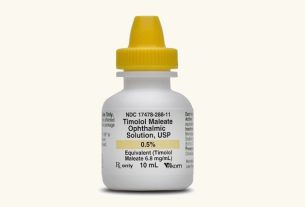Treatment for genital herpes is usually done with antivirals in the form of tablets, such as acyclovir, famciclovir and valacyclovir, for 7 to 10 days and, sometimes, medications in the form of ointments, according to the doctor’s advice.
Genital herpes is an infection caused by the Herpes simplex virus that can cause symptoms such as small blisters, painful sores and itching in the genital region, as well as discomfort when urinating. Understand better what genital herpes is.
If you suspect genital herpes, it is important to consult a gynecologist, urologist or general practitioner to recommend the most appropriate treatment. Although treatment does not cure genital herpes, it can speed up the healing of lesions and relieve symptoms.

Remedies for genital herpes
Antiviral medicines, such as acyclovir, famciclovir and valacyclovir, exist in the form of tablets and are normally indicated in the treatment of genital herpes for 7 to 10 days, especially when herpes appears for the first time.
If genital herpes appears again, treatment with antiviral medications may be indicated for a shorter period, ranging from 1 to 5 days, and it is recommended to start treatment before the skin lesions appear. Check out the main medications for genital herpes.
Furthermore, in cases where genital herpes returns more than 6 times a year, treatment with antiviral medicines may be indicated for up to 2 years and, in more serious cases, it may need to be done in the hospital, with the use of antivirals directly on the vein.
Make an appointment with a gynecologist in the nearest region:
Taking care of your health has never been easier!
Ointments for genital herpes
Typically, genital herpes ointments, which contain antivirals such as acyclovir or penciclovir, are not sufficient to treat the infection and may increase the risk of developing virus resistance. Therefore, they should not be the first option for treating genital herpes.
Treatment for genital herpes should always start with antivirals in the form of tablets and, if recommended by the doctor, only then should an ointment be combined to try to facilitate healing. Normally, acyclovir ointment should be applied to the affected region 5 times a day.
In addition, the doctor may also recommend anesthetic creams, containing lidocaine, for example, to reduce the pain and discomfort caused by the injuries. See the main ointments for genital herpes.
Care during treatment
During treatment for genital herpes, some precautions are recommended, such as:
- Avoid intimate contact while injuries existeven with a condom, as the condom may not protect the other person against the secretions released;
- Wash the intimate area only with saline solution and, if necessary, add the use of a soap suitable for the intimate area;
- Wear cotton underwearto allow the skin to breathe and prevent the accumulation of moisture in the area;
- Drink plenty of fluidssuch as water, tea or coconut water.
Another precaution that can help, especially if there is pain when urinating, is to urinate with the genitals dipped in warm water or, in the case of women, to move the edges of the genital region away so that the urine does not settle on the lesions.
See also how diet can help fight herpes:
Natural treatment option
Natural treatment for genital herpes can be recommended to complement the treatment indicated by the doctor, and can be done with a marjoram or witch hazel sitz bath, which are medicinal plants with analgesic, anti-inflammatory and antiviral properties. Check out more home treatments for genital herpes.
Treatment during pregnancy
The treatment of genital herpes during pregnancy is normally done with the use of acyclovir tablets for 5 to 10 days, according to the obstetrician’s instructions. Furthermore, if herpes appears at other times, treatment for a longer period may be indicated from 36 weeks of gestation.
When treatment is not carried out properly, the herpes virus can be transmitted to the baby, causing neonatal herpes, which is an infection that can put the baby’s life at risk. Know the risks of genital herpes during pregnancy.
Signs of improvement and worsening
Signs of improvement in genital herpes may appear from the 5th day of treatment and include a reduction in pain and healing of wounds in the intimate area.
Signs of worsening genital herpes can be noticed when treatment is not carried out properly, and include worsening swelling, pain and redness in the region, drowsiness, mental confusion and the appearance of wounds with pus. In this case, it is recommended to go to the emergency room for an evaluation.
Read too: Herpes: what it is, symptoms, types, transmission and treatment
Complications of genital herpes
The main complication of genital herpes is infection of the wounds by other microorganisms. Furthermore, when a person has intimate contact without a condom and without the wounds having healed, there is a greater risk of contracting HIV and other sexual diseases if the partner is infected.
Bibliography
- CDC. Genital Herpes. Available at: <https://www.cdc.gov/std/treatment-guidelines/herpes.htm>. Accessed on February 1, 2023
- INFORMEDHEALTH.ORG. What are the treatment options for genital herpes?. 2021. Available at: <https://www.ncbi.nlm.nih.gov/books/NBK525771/>. Accessed on February 1, 2023
- MINISTRY OF HEALTH. Clinical Protocol and Therapeutic Guidelines for Comprehensive Care for People with Sexually Transmitted Infections (STIs). 2022. Available at: <https://www.gov.br/aids/pt-br/centrais-de-conteudo/pcdts/2022/ist/pcdt-ist-2022_isbn-1.pdf/view>. Accessed on February 1, 2023
- Committee on Practice Bulletins—Obstetrics. Management of Genital Herpes in Pregnancy: ACOG Practice Bulletinacog Practice Bulletin, Number 220. Obstet Gynecol. Vol.135, n.5. e193-e202, 2020
- COLE, Shannon. Herpes Simplex Virus: Epidemiology, Diagnosis, and Treatment. Nurs Clin North Am. Vol.55, n.3. 337-345, 2020
- GROVES, Mary J. Genital Herpes: A Review. Am Fam Physician. Vol.93, n.11. 928-934, 2016
- MCCOMACK, Denise; KOONS, Kathryn. Sexually Transmitted Infections. Emerg Med Clin North Am. Vol.37, n.4. 725-738, 2019
- STATPEARLS. Herpes Simplex Type 2. 2022. Available at: <https://www.ncbi.nlm.nih.gov/books/NBK554427/>. Accessed on February 1, 2023
- BRAZILIAN FEDERATION OF GYNECOLOGY AND OBSTETRICS ASSOCIATIONS. Lower Genital Tract Guidance Manual. 2010. Available at: <https://www.febrasgo.org.br/images/arquivos/manuais/Manual_de_Patologia_do_Trato_Genital_Inferior/Manual-PTGI-Cap-08-Herpes-genital.pdf>. Accessed on November 15, 2019
- GROVES, Mary J. Genital Herpes: A Review. Am Fam Physician. Vol.93(11). 928-934, 2016
- INTERNATIONAL JOURNAL OF STD & AIDS. 2017 European guidelines for the management of genital herpes. . . . 2017. Available at: <https://www.iusti.org/regions/europe/pdf/2017/Herpes.pdf>. Accessed March 19,
- CDC. 2015 Sexually Transmitted Diseases Treatment Guidelines. Available at: <https://www.cdc.gov/std/tg2015/herpes.htm>. Accessed on March 19, 2019

Sign up for our newsletter and stay up to date with exclusive news
that can transform your routine!
Warning: Undefined array key "title" in /home/storelat/public_html/wp-content/plugins/link-whisper-premium/templates/frontend/related-posts.php on line 12
Warning: Undefined array key "title_tag" in /home/storelat/public_html/wp-content/plugins/link-whisper-premium/templates/frontend/related-posts.php on line 13




